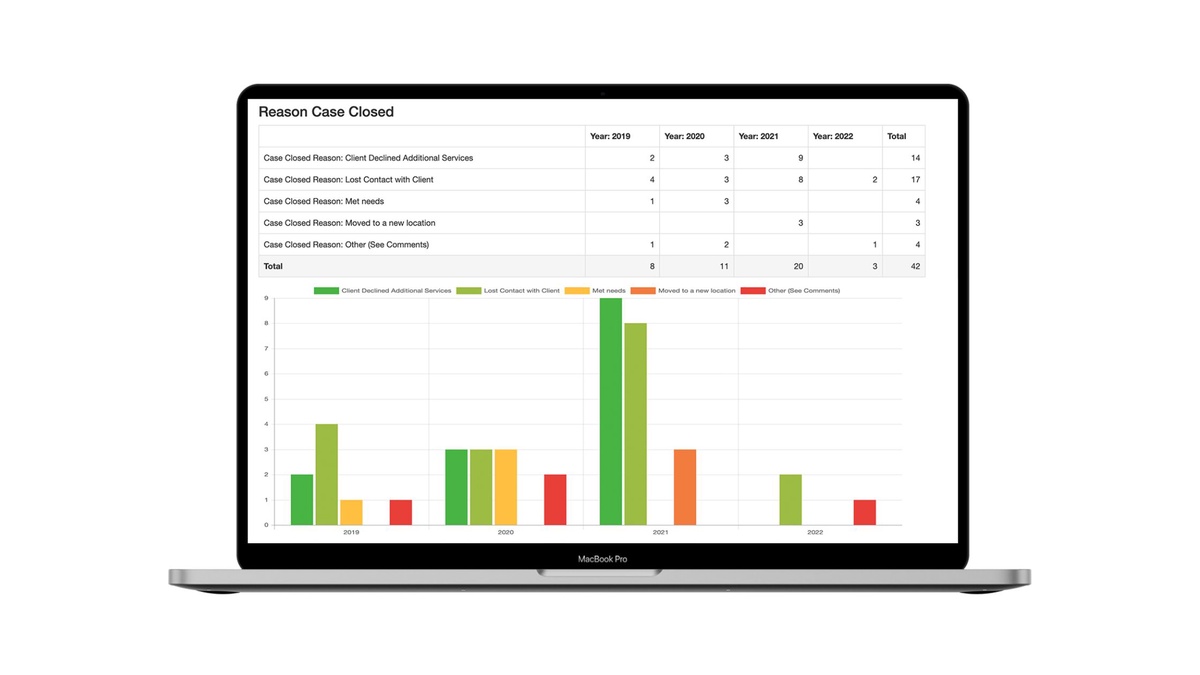In social services and healthcare, evidence-based practice has emerged as a cornerstone for delivering effective and impactful interventions. In between this practice lies the integration of case management databases, coupled with online CMS, offering professionals a powerful toolkit to inform, refine, and revolutionize their approaches.
Understanding Evidence-Based Practice:
Evidence-based practice (EBP) is a methodology that emphasizes the incorporation of the best available research, clinical expertise, and the preferences of individuals receiving services. It aims to bridge the gap between theory and practical application, ensuring that interventions are not only well-informed but also tailored to the unique needs of clients.
The Role of Case Management Databases:
Databases serve as the bedrock of evidence-based practice, acting as repositories for critical information that guides decision-making. These databases house a wealth of client data, ranging from demographic information to service history and outcomes. The systematic collection and organization of this data empower professionals to identify patterns, measure progress, and refine strategies in alignment with proven methodologies.
One of the key advantages of databases is their ability to provide a comprehensive view of an individual's journey through the support system. Professionals can track interventions, measure the effectiveness of different approaches, and adapt strategies in real-time. This holistic perspective fosters a more nuanced understanding of client needs and enables practitioners to tailor interventions for optimal outcomes.
The Evolution of Online Case Management Software:
With the advent of online case management software, the capabilities of databases have been amplified. Professionals no longer need to navigate cumbersome, paper-based systems; instead, they can access, update, and analyze data in real-time through user-friendly interfaces.
Case management software brings an unprecedented level of efficiency to evidence-based practice. Automated data entry reduces the risk of errors, while intuitive dashboards provide at-a-glance insights into client progress. The accessibility of these tools, often from any device with an internet connection, further enhances the flexibility and responsiveness of professionals in the field.
Data-Driven Decision Making:
The essence of evidence-based practice lies in data-driven decision-making. Databases facilitate this process by allowing professionals to track trends, measure outcomes, and identify areas for improvement. For instance, if a particular intervention consistently yields positive results for a certain demographic, practitioners can use this data to inform future strategies and allocate resources more effectively.
Moreover, they enable professionals to conduct rigorous assessments of their interventions. By comparing client outcomes against established benchmarks or similar cases, practitioners can gauge the efficacy of their approaches and make informed adjustments. This iterative process of assessment and refinement is fundamental to the continuous improvement inherent in evidence-based practice.
Enhancing Collaboration and Communication:
Case management software goes beyond individual practice; it fosters collaboration and communication among professionals within an organization. The ability to share relevant data securely and efficiently ensures that the entire team is aligned in their approach, promoting a cohesive and coordinated effort to support clients.
The integration of case management databases with online CMS is revolutionizing evidence-based practice in social services and healthcare. These tools empower professionals to leverage the wealth of data at their disposal, transforming it into actionable insights that drive positive outcomes for clients. As technology continues to advance, the role of these databases in shaping evidence-based practice is poised to become even more integral, ensuring that practitioners have the tools they need to provide the highest quality of care and support to those they serve.


No comments yet